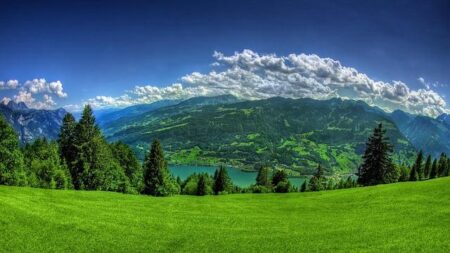Teodoro Obiang’s Continued Rule: Exploring the Significance of His Latest Election Win in Equatorial Guinea
Teodoro Obiang Nguema Mbasogo has recently clinched his sixth term as President of Equatorial Guinea, reinforcing his status as one of Africa’s most enduring political leaders. With a remarkable tenure exceeding 43 years since he assumed power through a coup in 1979,this latest electoral success raises vital discussions about the implications for democracy within the nation.Observers have pointed out that while ObiangŌĆÖs governance promotes narratives of stability and economic management, significant issues such as limited political diversity and restrictions on civil liberties persist. Analysts highlight several critical concerns regarding his prolonged leadership:
- Power Centralization: Under ObiangŌĆÖs rule, there has been an escalation in authoritarian measures that stifle political opposition and dissent.
- Human Rights Violations: Numerous reports indicate ongoing human rights abuses, including curtailment of free speech and arbitrary detentions.
- Economic Disparities: Despite being one of AfricaŌĆÖs leading oil producers, wealth distribution remains highly unequal, raising alarms over corruption and mismanagement.
The implications of this recent electoral win may further empower Obiang to solidify his control over the country, perhaps obstructing any meaningful reform efforts. This scenario presents a paradox: while government officials celebrate economic progress, societal tensions are evident among citizensŌĆöespecially youthŌĆöwho feel disconnected from these advancements. To illustrate the gap between economic growth and living conditions,consider the following table showcasing key economic metrics alongside social challenges faced by citizens:
| Economic Metric | Social Challenge |
|---|---|
| GDP Growth Rate: 5.5% | Youth Unemployment Rate: 40% |
| Total Oil Revenue: $5 billion | Poverty Level: 30% |
| Total Infrastructure Investment: $1 billion | % Access to Clean Water: 60% |
Equatorial Guinea’s Political Dynamics: Stability or Stagnation Under Longstanding Leadership?
The recent election victory for Teodoro Obiang raises significant questions about Equatorial Guinea’s trajectory moving forward. As he extends his presidency into a sixth termŌĆöthe longest for any world leaderŌĆöthe ramifications for socio-economic development and democratic practices are central to global discussions surrounding governance in this region. Critics contend that under his administration lies a stagnant political environment marked by minimal genuine competition and restricted civil liberties.
Detractors emphasize how government control over dissenting voices creates an atmosphere where perceived stability frequently enough comes at the expense of democratic participation. Conversely,supporters argue that ObiangŌĆÖs leadership has provided essential stability during tumultuous times in history; they assert it has shielded the nation from potential unrest while promoting growth through its oil sector.
The following factors encapsulate the contrasting elements defining Equatorial Guinea’s current political landscape:
- Economic Advancement: Despite criticisms regarding governance practices, GDP growth driven by oil revenues is notable.
- Political Suppression: Ongoing allegations concerning human rights violations continue to overshadow governmental legitimacy.
- Public Opinion Divide: Citizens exhibit mixed sentiments; some favor maintaining existing structures due to perceived benefits while others advocate for democratic reforms.
| Aspect | Advantages | Disadvantages | |
|---|---|---|---|
| Leadership Duration | Governance experience | Risk associated with authoritarianism | |
| Civic Environment | Stability amidst regional volatility | Absence of democratic freedoms | |
| Reform Focus Area | Description |
|---|---|
| Political DiversityEncourage establishment multiple parties reflecting varied interests./d/t/> |







